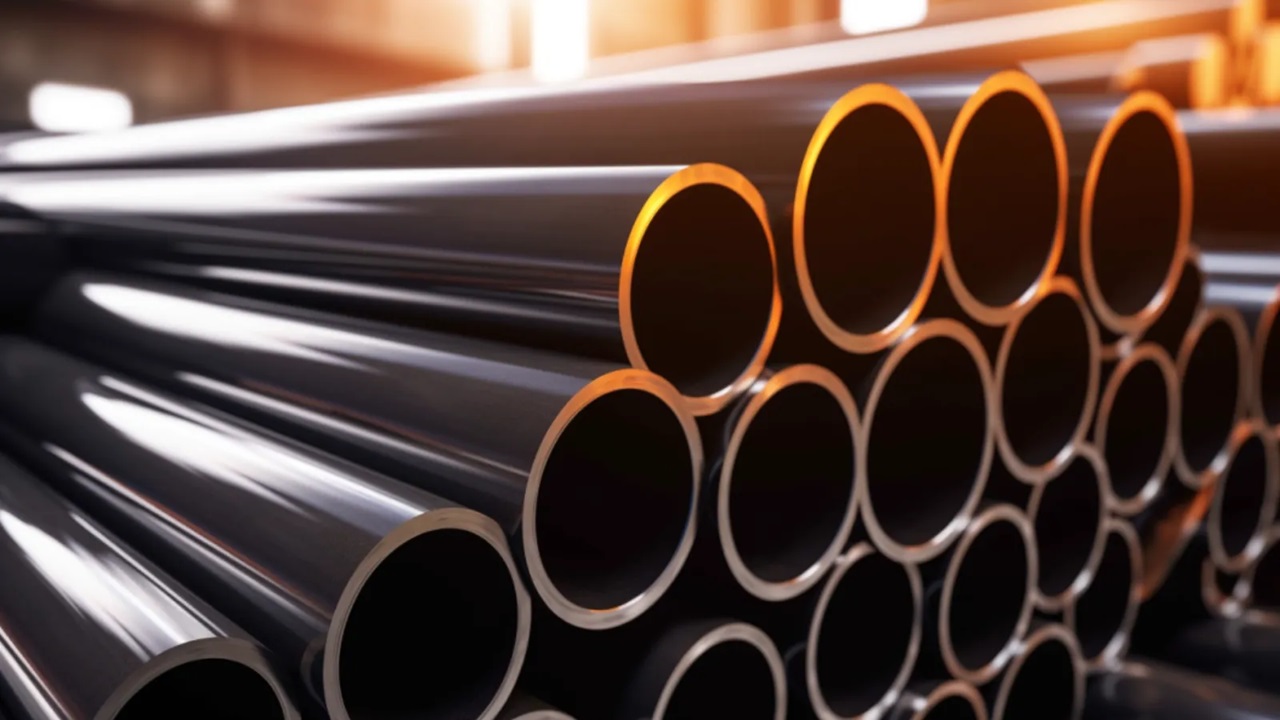The oil and gas sector depends heavily on steel pipes as essential components. The transportation system uses the pipes to carry crude oil and natural gas alongside liquid materials that arise from beneath the surface to elevated positions. API 5CT N80 stands as one of the most recognized steel pipes according to specifications established by API 5CT standards published by the American Petroleum Institute. The pipe demonstrates remarkable strength characteristics alongside excellent toughness performance while operating effectively in harsh environmental situations. Tuspipe is a leading API 5CT pipe manufacturer.
What Is API 5CT N80 Steel Pipe?
The drilling industry depends on API 5CT N80 steel pipes as drilling equipment for operations within the oil and natural gas fields. The pipe structure has been engineered to function under extreme pressure conditions that exist at deep underground depths. API 5CT standard defines the quality and performance standards for steel pipes that serve drilling and extraction operations through this particular pipe. N80 steel pipe stands out because it possesses strong mechanical properties along with high yield strength and superior resistance to wear and corrosion. The energy sector selects this material because it provides both cost efficiency and excellent strength-to-flexibility balance.
Applications of API 5CT N80 Steel Pipe
The API 5CT N80 steel pipe finds applications in oil and gas exploration and drilling and production activities. The industry trusts this material because it demonstrates excellent performance under demanding conditions and high-pressure situations. The main use of API 5CT N80 steel pipe exists in the production of casing pipes. The walls of oil and gas wells receive these pipes to stop well collapse while preventing harmful substances from entering the well. The N80 casing pipe works best in wells extending to medium depths while operating under normal pressure conditions. The second major application of N80 pipe exists in tubing pipes. The transportation of oil and gas through the well to the surface occurs through these pipes. N80 tubing serves as a dependable material that delivers efficient resource extraction through its durable structure. N80 pipe finds its application in both horizontal drilling operations and hydraulic fracturing operations, which are commonly known as fracking. Advanced drilling techniques require tubing materials with high resilience because they must maintain their flexible state when exposed to both high-stress situations and chemical interactions. N80 steel pipes serve the needs of geothermal energy and water well drilling operations because they offer excellent durability combined with affordable costs.
Advantages of Using API 5CT N80 Steel Pipe
N80 steel pipe stands out because it delivers exceptional value for money to users. The combination of high-performance capabilities and affordable cost makes N80 steel pipe suitable for various drilling operations. This material offers multiple applications as a key advantage. N80 pipe functions across various well types, including shallow and medium-depth wells and conventional and unconventional drilling operations. The material demonstrates outstanding durability as a primary benefit. The ability of the N80 pipe to maintain its strength under harsh operational conditions leads to reduced maintenance expenses and extended operational reliability. The simple fabrication process combined with straightforward installation benefits oil and gas companies. The system allows customization that matches particular drilling requirements for better operational safety and efficiency.
Challenges and Considerations
API 5CT N80 steel pipe delivers numerous advantages, but organizations should recognize its specific operational boundaries. Offshore drilling operations encounter the primary disadvantage of this material since it shows weak corrosion resistance. Operations that drill offshore in corrosive environments need supplementary protective coatings or corrosion-resistant metal alloys to extend the material lifespan. The strength of the N80 steel pipe should be evaluated against stronger grades of pipes. The strength of N80 steel meets most application needs, but deep wells requiring higher-strength steel would need P110 or Q125. The successful implementation of N80 steel pipe depends on appropriate handling techniques, proper storage methods, and correct welding procedures. Proper manufacturing techniques and installation practices are necessary to achieve the complete performance capabilities of N80 pipe.
Conclusion
The oil and gas industry depends on API 5CT N80 steel pipe as a dependable material that finds widespread application. The combination of strength and durability with cost-effective properties makes N80 steel a preferred material choice for applications involving casing, tubing, and drilling needs. API 5CT N80 steel pipe exists in two versions, N80-1 and N80Q, which serve different applications ranging from basic well operations to challenging drilling operations. The material maintains operational safety and efficiency throughout oil and gas extraction by demonstrating resistance to pressure and impacts and changing environmental factors. Companies can achieve better project performance and long-term success through informed decisions by studying the features, applications, and considerations of API 5CT N80 steel pipe.


